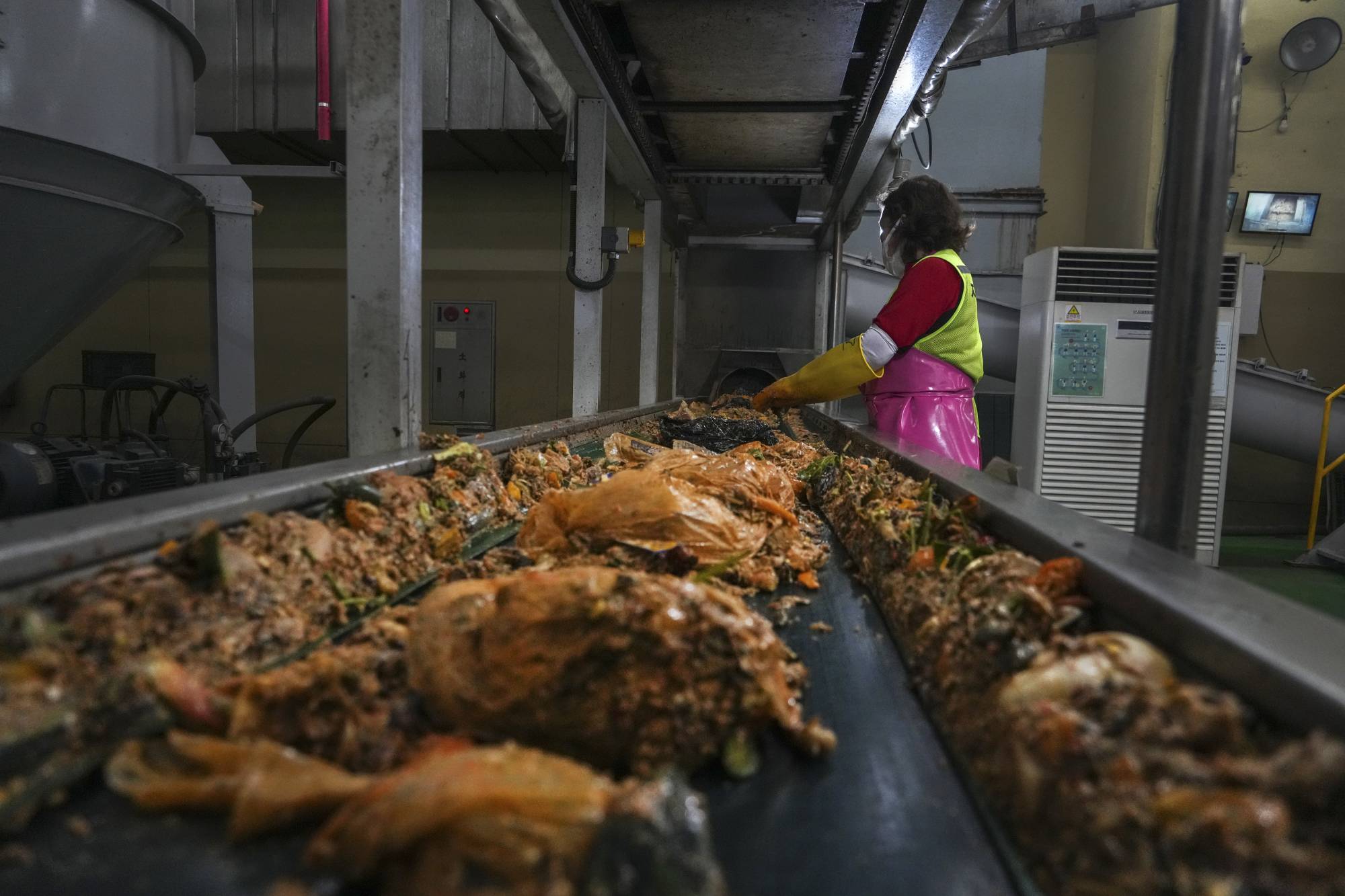Around the world, most of the 1.4 billion tons of food thrown away each year goes into landfills. As it rots it pollutes water and soil, and releases huge amounts of methane — one of the most potent greenhouse gases.
That's not the case in South Korea, which banned food scraps from its landfills almost 20 years ago. Here, the vast majority of it gets turned into animal feed, fertilizer and fuel for heating homes.
Food waste is one of the biggest contributors to climate change, not only because of the methane but also because the energy and resources that went into its production and transport have been wasted, too.


















With your current subscription plan you can comment on stories. However, before writing your first comment, please create a display name in the Profile section of your subscriber account page.